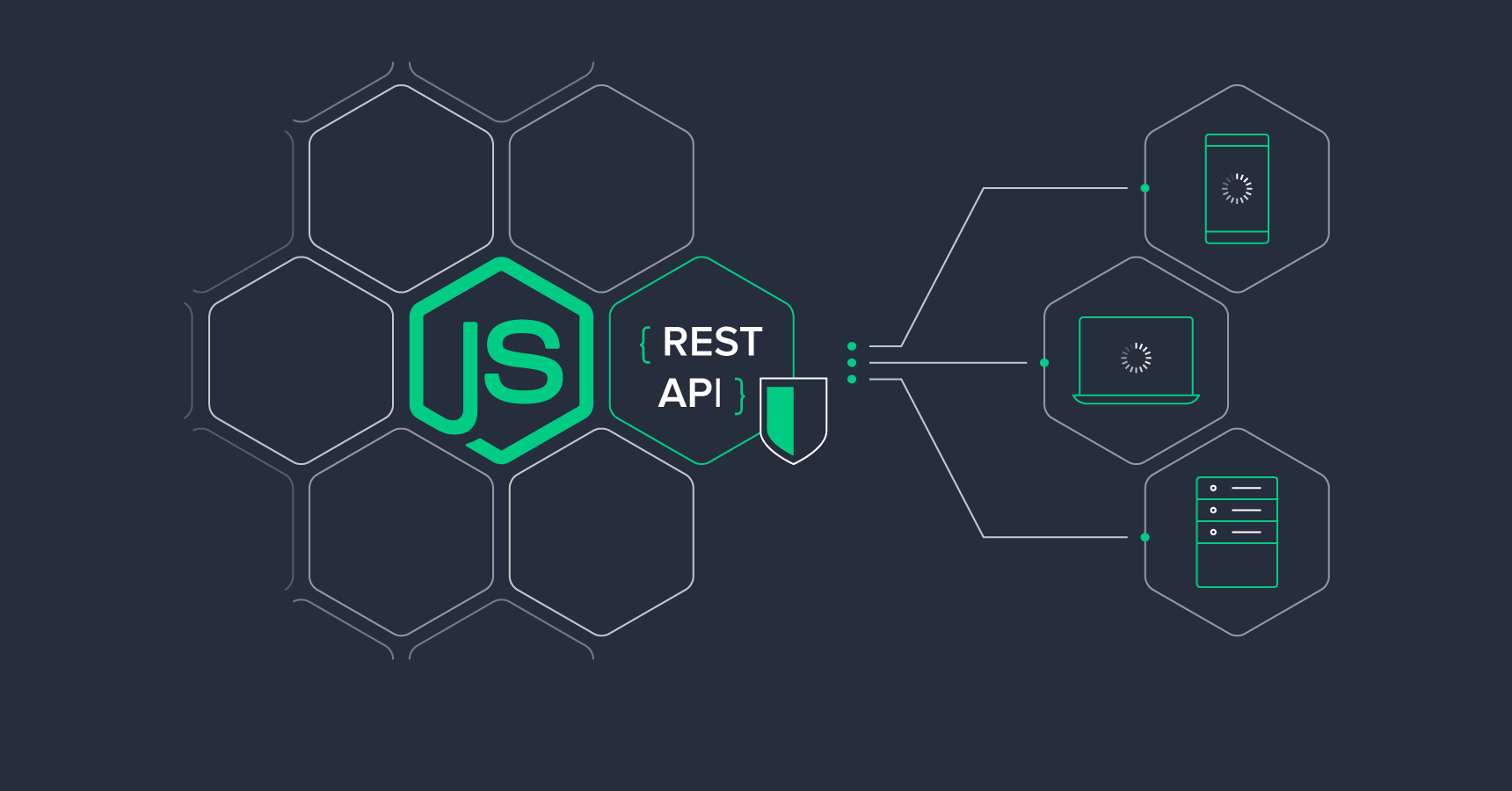Tips to Hire Node JS Developers

Looking to hire Node js developer but not sure where to start? Look no further! In today's digital age, finding the right talent for your project can be a daunting task. But fear not, because we've got you covered with some valuable tips and tricks on how to hire the perfect Node.js developer. Whether you're creating a web application or building an API, having an experienced and skilled Node.js developer is essential for success. So let's dive in and discover how you can find the best talent in the industry and take your project to new heights!
What is Node.js use for?
Node.js is a powerful JavaScript runtime environment that allows developers to run JavaScript code outside of a web browser. It is widely used for various purposes, including:
- Server-side Web Development: Node.js is commonly used to build server-side applications and web servers. It provides an event-driven, non-blocking I/O model, making it efficient for handling concurrent requests and real-time applications.
- RESTful APIs: Node.js is well-suited for building RESTful APIs due to its lightweight nature and fast I/O processing. It enables developers to create scalable and efficient APIs that can handle a large number of requests.
- Microservices: Node.js is often chosen for developing microservices architectures. Its modular and lightweight nature allows developers to build small, independent services that can be easily managed and scaled.
- Real-time Applications: Node.js excels in building real-time applications such as chat applications, collaboration tools, gaming servers, and live streaming platforms. Its event-driven architecture and WebSocket support enable bidirectional communication between the server and clients in real-time.
- Command-line Tools: Node.js is commonly used to build command-line tools and scripts. Its ability to execute JavaScript on the server-side makes it a convenient choice for automating tasks, interacting with APIs, and creating developer tools.
- Development of Build Tools: Node.js is used to develop various build tools like task runners (e.g., Gulp, Grunt), package managers (e.g., npm, Yarn), and bundlers (e.g., Webpack).
- Internet of Things (IoT): Node.js is utilized in IoT applications to interact with embedded systems, collect sensor data, and control devices. Its lightweight footprint and event-driven nature make it suitable for IoT scenarios.
- Streaming Applications: Node.js is employed for building streaming applications such as video streaming platforms, audio streaming services, and real-time analytics systems. It can efficiently handle and process large volumes of data in real-time.
- Serverless Functions: Node.js is often chosen for developing serverless functions, such as AWS Lambda functions or Azure Functions. Its lightweight nature allows for quick and efficient execution of functions in response to specific events.
Overall, Node.js offers a versatile platform for building a wide range of applications, from small-scale APIs to large-scale, high-traffic web applications and real-time systems. Its asynchronous, event-driven architecture makes it well-suited for handling concurrent operations and building efficient, scalable applications.

Define your project requirements
Before you start searching for a Node.js developer, it's crucial to define your project requirements clearly. Take the time to sit down and outline what exactly you need from your developer. Are you building a web application? Do you require backend development or API integration? Understanding the scope and goals of your project will help you find a developer with the right skillset.
Once you have a clear vision of your project requirements, consider the specific technologies and frameworks that will be involved. Node.js is often used in conjunction with other tools like Express.js or MongoDB. Make sure to include these details in your job description when posting on job boards or freelancing platforms.
Additionally, think about any additional qualifications or experience that might be necessary for your project. Are there particular industry standards or best practices that should be followed? Consider whether knowledge of front-end technologies like React.js would also be beneficial.
By defining your project requirements upfront, you'll attract developers who are not only qualified but also aligned with the specific needs of your project. This initial clarity will save both parties valuable time during the hiring process and ensure smoother collaboration moving forward.
There are several ways to find Node.js developers for your project.
Here are some effective methods:- Online Job Platforms: Utilize popular freelancing platforms or job boards specifically designed for hiring developers. Websites like Upwork, Freelancer, Toptal, and Guru allow you to post job listings or directly search for Node.js developers. You can review their profiles, portfolios, and ratings to find suitable candidates.
- Developer Communities and Forums: Engage with online communities dedicated to Node.js development, such as GitHub, Stack Overflow, and Reddit. Participate in discussions, post job openings, or directly reach out to developers who have expertise in Node.js.
- Tech Conferences and Meetups: Attend technology conferences or local meetups focused on Node.js or JavaScript development. These events provide opportunities to network with developers, exchange contacts, and even meet potential candidates in person.
- Referrals and Recommendations: Seek recommendations from colleagues, friends, or other professionals in the industry who have previously worked with Node.js developers. Their insights can help you find reliable and skilled candidates.
- Social Media Platforms: Utilize social media platforms like LinkedIn, Twitter, and Facebook to search for Node.js developers. Join relevant groups or communities where developers discuss their work and post job opportunities.
- Professional Networking: Attend industry-specific networking events, workshops, or seminars. Building connections with professionals in the tech industry can lead to referrals or direct introductions to Node.js developers.
- Developer Agencies and Outsourcing Companies: Consider hiring Node.js developers through software development agencies or outsourcing companies. These entities have pre-vetted talent pools and can provide you with dedicated developers or teams based on your project requirements.
Remember to clearly define your project requirements, assess the skills and experience of potential candidates, and conduct thorough interviews or technical assessments to ensure a good fit before finalizing your hiring decision.

Do your research
When it comes to hiring Node JS developers, doing your research is crucial. With so many options available, you want to make sure you find the right fit for your project. Start by exploring different platforms and websites that connect clients with developers. Look for those that specialize in Node JS development or have a strong reputation in the industry.
Next, take the time to read through developer profiles and portfolios. Look for experience working with Node JS specifically, as well as any relevant certifications or skills they may have. Pay attention to projects they've worked on in the past and see if their style aligns with what you're looking for.
In addition to reviewing portfolios, be sure to check out reviews from previous clients. This will give you insight into how reliable and professional a developer is. Look for patterns of positive feedback and pay attention to any negative comments or concerns raised by past clients.
Another important aspect of researching potential candidates is determining their availability. Make sure they are able to commit the necessary time and resources to your project within your desired timeline. Communication is key here - ensure there are clear expectations about availability upfront.
Conducting thorough research will help you narrow down your options and find a skilled Node JS developer who can meet your project requirements effectively.
Check portfolios and reviews
When hiring Node.js developers, it's crucial to carefully evaluate their portfolios and reviews. This step will give you a better understanding of their skills, experience, and the quality of their work.
Start by reviewing their portfolio to assess the type of projects they have worked on in the past. Look for projects that are similar in scope or industry to yours. This will indicate whether they have relevant experience and expertise in handling similar challenges.
Next, take some time to read through client reviews or testimonials. These can provide valuable insights into how well the developer communicates, meets deadlines, and delivers results. Look for positive feedback that highlights their technical proficiency, problem-solving abilities, and collaborative nature.
It's also worth checking if they have any open-source contributions or personal projects. This demonstrates their passion for coding outside of regular work engagements and indicates a dedication to self-improvement.
Remember that while portfolios are important indicators of a developer's capabilities, they shouldn't be the sole factor influencing your decision. It's essential to consider other aspects such as communication skills, availability, pricing models, and cultural fit as well.
By thoroughly evaluating portfolios and reviews during your hiring process, you'll increase your chances of finding skilled Node.js developers who can meet your project requirements effectively.
How much does it cost to hire NodeJS developer?
The cost of hiring a Node.js developer can vary depending on several factors, including the developer's experience level, location, project requirements, and the hiring model you choose. Here are some general guidelines to give you an idea of the cost:- Hourly Rates:
- Junior Node.js developers: $15 to $35 per hour
- Mid-level Node.js developers: $35 to $75 per hour
- Senior Node.js developers: $75 to $150+ per hour
- Project-based Rates:
- Small projects: $1,000 to $5,000
- Medium projects: $5,000 to $20,000
- Large projects: $20,000 and above
- Location-based Rates: Developer rates may vary depending on their geographical location. For example, rates in North America and Western Europe are generally higher compared to rates in Eastern Europe, Asia, or South America.
It's worth noting that these rates are approximate and can vary significantly depending on the specific requirements of your project and the expertise of the developer. Additionally, some developers may prefer fixed-price contracts or long-term contracts, which can affect the overall cost.
When hiring a Node.js developer, it's essential to consider factors beyond cost alone, such as their skill level, experience, portfolio, and communication abilities, to ensure a successful collaboration.

Make sure they are available when you need them
Availability is a crucial factor to consider when hiring Node.js developers. You want to ensure that the developer you choose can dedicate enough time and effort to your project. It's important to find someone who is reliable and responsive, as this will greatly impact the success of your project. One way to gauge their availability is by analyzing their response time during the initial communication process. Do they reply promptly? Are they willing to schedule meetings or calls at convenient times for you? These are all indicators of how accessible they will be throughout the development process. Additionally, it's essential to discuss their working hours and availability upfront. Some developers may have other commitments or work on multiple projects simultaneously, which could affect their ability to meet deadlines or provide timely updates. Clarify expectations regarding response times, meeting schedules, and overall availability so there are no surprises later on. Furthermore, consider different time zones if you're planning on working with remote developers. Find out if there will be any overlap in your respective working hours or if adjustments need to be made for effective collaboration. By choosing a Node.js developer who is readily available and committed to your project's timeline, you can ensure efficient communication and timely progress updates throughout the development process.What is the job description of a NodeJS expert?
The job description of a Node.js expert can vary depending on the specific role and responsibilities within an organization. However, here are some common job responsibilities and skills expected from a Node.js expert:- Developing and maintaining server-side applications: Node.js experts are proficient in using Node.js to build scalable and efficient server-side applications. They are responsible for designing, coding, testing, and debugging Node.js applications, ensuring their performance and reliability.
- Implementing APIs and integrations: Node.js experts are skilled in designing and developing RESTful APIs and integrating them with front-end systems or third-party services. They understand concepts like API design, authentication, data validation, and security.
- Database integration and management: Node.js experts work with databases like MongoDB, MySQL, or PostgreSQL, implementing data models, writing queries, and managing database operations within Node.js applications.
- Performance optimization and scalability: They have experience in optimizing Node.js applications for performance, including handling concurrency, reducing response times, and optimizing memory usage. They understand strategies for scaling Node.js applications to handle increasing loads.
- Troubleshooting and debugging: Node.js experts are proficient in identifying and resolving issues within Node.js applications. They have strong debugging skills and are familiar with tools and techniques for diagnosing and fixing bugs and performance bottlenecks.
- Testing and quality assurance: They are experienced in writing unit tests, integration tests, and end-to-end tests to ensure the quality and stability of Node.js applications. They may use testing frameworks like Mocha, Chai, or Jest.
- Collaboration and communication: Node.js experts often work as part of a development team, collaborating with front-end developers, designers, and other stakeholders. They possess good communication skills to effectively convey technical concepts and collaborate on project requirements and timelines.
- Staying updated with Node.js ecosystem: Node.js experts keep themselves updated with the latest trends, libraries, and frameworks within the Node.js ecosystem. They explore new tools, best practices, and industry standards to enhance their skills and contribute to the development process.

Which companies hire nodejs developers?
Many companies hire Node.js developers to build scalable and efficient web applications, APIs, and backend systems. Here are some notable companies known to hire Node.js developers:- Google: Google extensively uses Node.js for various projects, including server-side development, command-line tools, and scalable applications.
- Netflix: Netflix employs Node.js for its backend systems and API development to power its streaming platform.
- Uber: Uber relies on Node.js for its real-time data streaming and backend services, enabling efficient communication between drivers and riders.
- LinkedIn: LinkedIn uses Node.js for its server-side applications and API development, as well as for building real-time features and scalable systems.
- PayPal: PayPal utilizes Node.js for building scalable and efficient backend services, payment gateways, and fraud detection systems.
- Walmart: Walmart employs Node.js for its e-commerce platform, allowing for efficient handling of high volumes of customer requests and providing real-time updates.
- NASA: NASA uses Node.js in various projects, including the development of mission control systems, data visualization tools, and scientific applications.
- Microsoft: Microsoft utilizes Node.js for various projects, including the development of cross-platform desktop applications, cloud services, and IoT solutions.
- IBM: IBM incorporates Node.js into its enterprise solutions, cloud-based platforms, and development tools.
- Airbnb: Airbnb leverages Node.js for its backend services, data processing, and building real-time collaborative features for its platform.
- Adobe: Adobe employs Node.js for building web applications, backend services, and real-time collaboration tools.
- Slack: Slack uses Node.js for its backend infrastructure, API development, and real-time messaging features.
- Trello: Trello relies on Node.js for its backend services, providing a scalable and collaborative project management platform.
- Cisco: Cisco utilizes Node.js for developing networking and IoT applications, as well as for backend services.
- Intel: Intel incorporates Node.js into its software development and IoT projects, leveraging its efficiency and scalability.
These are just a few examples, and there are numerous other companies across various industries that hire Node.js developers. The demand for Node.js expertise continues to grow as more organizations adopt the technology for their web development needs.

What is the job description of a NodeJS expert?
The job description of a Node.js expert typically involves a combination of software development, backend programming, and server-side application management. Here is a comprehensive job description for a Node.js expert:Responsibilities:
- Develop and maintain server-side applications: Design, develop, and maintain scalable, high-performance server-side applications using Node.js and related frameworks.
- API development and integration: Design and implement RESTful APIs, integrating them with frontend systems or third-party services. Ensure proper data validation, security, and authentication mechanisms.
- Database management: Integrate databases (such as MongoDB, MySQL, or PostgreSQL) with Node.js applications, handle data models, write optimized queries, and ensure efficient database operations.
- Performance optimization: Optimize the performance of Node.js applications by implementing efficient algorithms, caching strategies, and load balancing techniques. Identify and resolve performance bottlenecks.
- Testing and debugging: Write unit tests, integration tests, and conduct debugging to ensure the stability and reliability of Node.js applications. Use testing frameworks and debugging tools effectively.
- Collaborate with cross-functional teams: Work closely with frontend developers, UI/UX designers, and other stakeholders to understand project requirements, provide technical insights, and ensure smooth collaboration.
- Security and data protection: Implement security measures to protect applications against common vulnerabilities, ensure data encryption, and follow best practices for secure coding.
- Continuous integration and deployment: Set up automated build and deployment processes, utilize continuous integration and delivery (CI/CD) tools to streamline development workflows.
- Stay updated with industry trends: Keep up-to-date with the latest developments in the Node.js ecosystem, frameworks, libraries, and emerging technologies. Continuously learn and explore new tools and techniques to enhance skills and improve development practices.
Requirements:
- Strong proficiency in JavaScript and server-side development using Node.js.
- Experience with popular Node.js frameworks such as Express.js, Koa, or Nest.js.
- Knowledge of asynchronous programming, event-driven architecture, and understanding of the event loop in Node.js.
- Familiarity with frontend technologies such as HTML, CSS, and JavaScript frameworks (e.g., React, Angular, Vue.js).
- Experience working with databases, including query optimization, data modeling, and database management systems.
- Understanding of RESTful API design principles, authentication, and authorization mechanisms.
- Knowledge of version control systems (e.g., Git) and collaborative development workflows.
- Familiarity with testing frameworks and methodologies for unit testing and integration testing.
- Strong problem-solving skills and the ability to troubleshoot and debug complex applications.
- Excellent communication skills and the ability to work effectively in a team environment.
- Bachelor's degree in computer science or a related field (or equivalent experience).
Note that the specific job requirements and responsibilities may vary based on the company, project, and seniority level. The above description provides a general outline for a Node.js expert's role and skills.

Ask for a trial period
When hiring a Node JS developer, it's crucial to make sure they have the skills and experience needed for your project. One way to assess this is by asking for a trial period. This allows you to see firsthand how well the developer performs and whether they are a good fit for your team. During the trial period, give the developer specific tasks or projects that align with your requirements. This will help you gauge their technical abilities and problem-solving skills. It's important to communicate clear expectations during this time so both parties know what is expected. The trial period also provides an opportunity to assess their communication style and work ethic. Are they responsive? Do they follow instructions accurately? Are they proactive in seeking clarification when needed? Additionally, pay attention to how well the developer integrates with your existing team dynamics. Collaboration is key in any development project, so it's essential that everyone can work together effectively. Remember, during the trial period, you're not only evaluating the developer but also giving them an opportunity to evaluate if your company culture aligns with their values and goals. By asking for a trial period, you can minimize risks associated with hiring someone who may not meet your expectations or fit well within your team. Taking this step will ultimately lead to finding the right Node JS developer for your project
Be prepared to negotiate
When hiring Node JS developers, it's important to be open and flexible when it comes to negotiations. Remember, you're not just looking for someone who can code in Node JS you're looking for a partner who can contribute to the success of your project. Negotiation is a normal part of the hiring process, so don't be afraid to discuss terms that are mutually beneficial. This could include factors such as project timelines, payment structure, or even additional services like ongoing support or maintenance. Keep in mind that finding top-notch Node JS developers may come at a higher cost than hiring less experienced ones. However, investing in skilled professionals can save you time and money down the line by delivering high-quality work and avoiding potential setbacks. During negotiations, make sure both parties are clear about expectations and deliverables. It's essential to communicate openly and honestly throughout the negotiation process to establish a solid foundation for future collaboration. Remember that negotiating doesn't have to be confrontational; it's about finding common ground where both parties feel satisfied with the arrangement. By being prepared and willing to negotiate, you increase your chances of finding the right developer who aligns with your goals and budget. So, approach negotiations with an open mind and willingness to compromise if needed. The end goal is ultimately successful collaboration between yourself and your chosen Node JS developer.Conclusion
In today's fast-paced digital landscape, hiring the right Node.js developer can make all the difference in ensuring the success of your project. By following these tips and guidelines, you can greatly increase your chances of finding a skilled and dedicated Node.js developer who will help bring your vision to life. Remember to define your project requirements clearly from the beginning and do thorough research to understand the skills and experience necessary for your specific needs. Take the time to review portfolios and read reviews from previous clients to gauge their expertise. It is also essential to ensure that the developers you hire are available when you need them, as effective communication and timely collaboration are crucial for successful project completion. Asking for a trial period allows you to assess their capabilities firsthand before making a long-term commitment. Be prepared to negotiate terms such as rates or working hours while keeping in mind that quality should not be compromised by cost alone. Finding a balance between affordability and expertise is key. With these tips in mind, you are now equipped with valuable insights on how to hire top-notch Node.js developers who can contribute significantly towards building robust applications that meet your business objectives. So go ahead, start searching for your ideal Node.js developer today!
